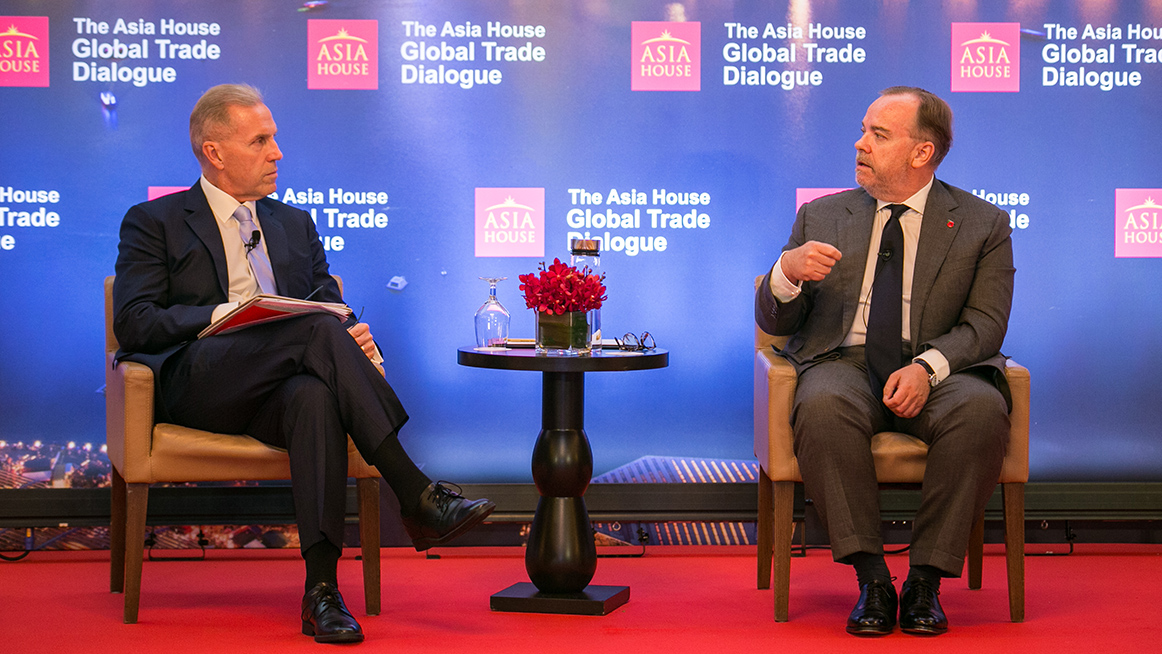Driving commercial and political engagement between Asia, the Middle East and Europe
Driving commercial and political engagement between Asia, the Middle East and Europe
Driving commercial and political engagement between Asia, the Middle East and Europe

Global banking faces a “tremendous threat” from big data companies, the former Group CEO of HSBC, Stuart Gulliver, has said.
Speaking at The Asia House Global Trade Dialogue in Singapore, Gulliver said challenges to the banking industry are “primarily coming not from FinTech, but big tech.”
While digital innovation across personal finance will impact on retail banking, “big tech, the big platforms, absolutely are a threat to traditional banks,” he said.
During an interview with Asia House Chief Executive Michael Lawrence, Gulliver cited the huge data pools that big tech companies have access to as a key area of concern for the banking sector, as these will enable tech platforms “to bank companies, particularly SMEs, that the traditional banking system would struggle to.
“A lot of very small SMEs don’t have audited accounts or tonnes of collateral to put up. But if you have the data going through to make decisions based on AI and machine learning – because you are in the ecosystem in which the SME buys its supplies and sells to consumers – you can make probably a better-informed credit decision than a human could within a bank.”
Gulliver, who currently serves as Non-Executive Director at Jardine Matheson Holdings, said the sector will need to adapt to the threat.
“The industry absolutely has to deal with this,” he warned.
Offering a prediction for the future of banking, Gulliver also suggested that business models may well change as FinTech makes incursions into the retail banking space.
“It wouldn’t surprise me if in ten years’ time, HSBC looked more like it did in 1865, when it first started,” he said. “It was a corporate bank that financed maritime trade, banking small, medium sized and large corporates, and it didn’t have a retail piece.”
The Q&A, which took place on the main stage of the Asia House Global Trade Dialogue on 7 November, also saw Gulliver address US-China trade tensions and the outlook for the global economy.
Commenting on the ‘phase one’ deal between the US and China, Gulliver opined that the deal fails to address key issues at the heart of the current tensions, including Intellectual Property rights and “the business model of the Chinese state.”
But he was broadly optimistic about the state of the world economy, citing a stronger-than-expected US performance and a flattening yield curve.
“We’ve got reasonably strong signs of a prolongation of US GDP growing in a positive way,” he said.
“What’s going to be in the back of everyone’s mind is that we’re at the very late stage of a bull market, and the extent to which that bull market can continue, and on what basis it continues, is the question that everyone investing money has to deal with.”
